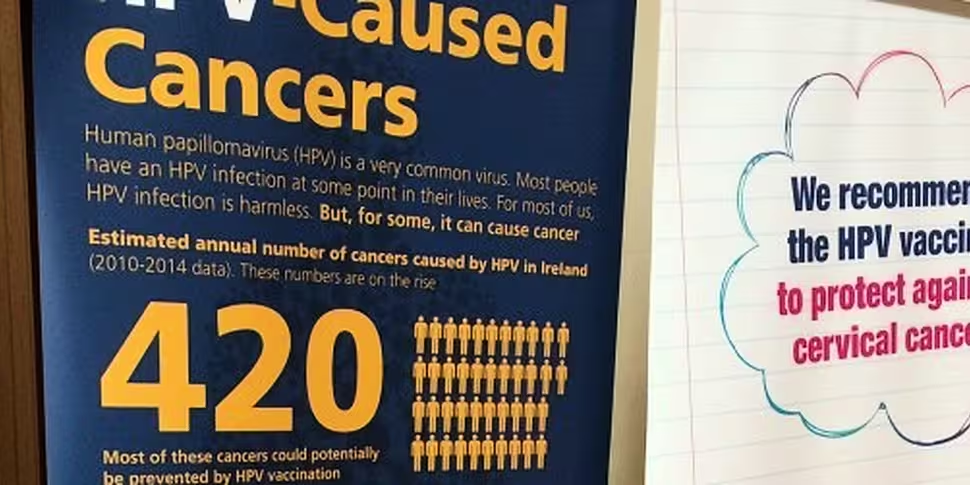The HSE has launched a new HPV vaccine awareness campaign, saying "unsubstantiated, scientifically incorrect and dangerous" claims about the vaccine have been shared in recent years.
The new campaign urges parents to get informed and get their daughters vaccinated to help protect them against cervical cancer.
Over 90 women die from cervical cancer each year - a third of them under the age of 50 - and doctors insist that many of these deaths are preventable when girls are vaccinated with Gardasil.
However, hundreds of parents - including those who have formed the REGRET campaign group - have claimed the HPV vaccination is the cause of 'serious health problems' that their teenager daughters have developed.
The HSE says: "These claims are untrue and are not backed by any credible scientific body."
Provisional data from the health organisation shows that vaccination rates have dropped from a high of almost 90% in 2015 to around 50% last year.
The new campaign looks to highlight the stories of "girls and young women who have had the vaccine [and] mums whose daughters have been protected".
HSE Director General Tony O'Brien suggests some of the methods used to try and persuade people against vaccines amounts to 'emotional terrorism'.
Speaking at the launch of the campaign this morning, Health Minister Simon Harris stressed that social media is not the best place to receive medical advice - and asked amateurs to "please butt out".
He suggested: "If you want to be a clinician, if you want to be a pharmacist, if you want to be a scientist - go ahead and study one of those disciplines, and then come back and give us medical or scientific advice. Until then, please butt out, because this is too important."
"Please Butt Out" says @SimonHarrisTD to amateurs giving medical advice re #HPV. Leave it to medical professionals pic.twitter.com/2zOSuXtduM
— Juliette Gash (@JulietteGash) August 30, 2017
Grainne Flannelly is Clinical Director of the Cervical Check programme and a Consultant Gynaecologist.
She says it can be hard for parents of 12-year-old girls to think of their daughter aged 25 when she might develop cervical cancer.
However, she says parents need to know that early vaccination can dramatically reduce the danger of a persistent HPV infection.
"If we had an intervention like this for any other cancer, we'd be singing it from the rooftops," she suggested.
"Safe & effective"
Professor Donal Brennan - Consultant Gynaecologist and Obstetrician at the Mater Hospital in Dublin - says international evidence shows the vaccine is saving lives, and stresses that the vaccine is "safe and effective".
The HSE is now working to improve the information available about the vaccine, and Prof Brennan "completely refutes" any suggestion they are acting irresponsibly as a result.
He told Newstalk Breakfast: "We have well over a 100 million girls vaccinated - and boys in certain countries - across the world. We've over 200 million vaccine doses administered. The medical community believe that vaccination is a key component of public health.
"The fact is that if we have identified a problem with a vaccine, we have withdrawn that vaccine - that was seen very clearly with the flu vaccine a number of years ago, where there was a development in narcolepsy."
He added: "Extensive assessments across multiple different jurisdictions - most commonly cited [being] the European Medicines Agency - have looked at this in detail.
"We do not in anyway suggest that these girls are not sick - but we cannot say there is a causative link between the HPV vaccination and those different symptoms & syndromes that have developed."









